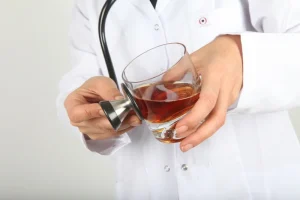
This session discusses the importance of setting personal boundaries and provides strategies for communicating them effectively with others. Identifying and celebrating personal strengths can boost self-esteem and resilience. This activity helps members recognize qualities they may have overlooked and encourages them to draw on these strengths as they navigate their recovery journey.

Substance Abuse Group Activities That Empower Recovery
- Creating positive affirmations helps members reinforce self-worth and stay motivated.
- Acknowledging past successes unrelated to addiction can boost self-esteem.
- This activity encourages members to reflect on harmful habits and identify ways to replace them with healthier behaviors that align with their recovery goals.
- Randomly assign locks to half of the group and keys to the other half.
This activity helps members explore qualities, interests, and values that define them beyond addiction, encouraging them to embrace a new, healthy identity. Gratitude expressed through kindness can boost mood and foster connections. Encourage members to do something kind for others, such as a small gesture or word of encouragement, reinforcing gratitude and strengthening community bonds. Writing a letter to a loved one allows members to articulate their commitment to recovery and strengthen their support network. This activity can bring clarity, reinforce personal resolve, and foster understanding with those who matter most.
- Goals can provide motivation, purpose, and a sense of accomplishment.
- Although the exercises mentioned earlier can be conducted for adolescents, here is a list of fun and engaging CBT group activities for youth.
- Therapists can then help members understand the relationship between situations and emotions and how clients can better cope with those emotions in the future.
- People opting for group therapy and support groups are often looking for peers to offer guidance and support in their recovery journey.
Substance Abuse Group Therapy Activities

CBT skills group is a course that teaches mindfulness, your emotions, and the interconnection of thoughts, feelings, and behaviors. Thought replacement or cognitive restructuring is one of the fundamentals of CBT. You can encourage the clients to create a worksheet with negative thoughts to change the negative perspective. This session discusses steps to rebuild trust with family, friends, and oneself through honesty, consistency, and patience, helping members repair important relationships. Regret can be a substance abuse group activities heavy burden, but it can also motivate positive change.
Managing Financial Stress

Setting personal goals gives members a clear direction in their recovery journey. This activity helps members define short-term and long-term goals, creating actionable steps to achieve them. Goals can provide motivation, purpose, alcohol rehab and a sense of accomplishment. This peace will help you stay motivated towards your recovery journey.

What is a CBT Skills Group?
In this open discussion, members discuss the importance of forgiving themselves and others, allowing them to let go of resentment and cultivate a supportive, forward-focused mindset. Pairing members to practice active listening allows them to repeat and respond with empathy, strengthening mutual understanding and reinforcing the group’s supportive environment. Identifying core values can serve as a strong foundation for recovery. Creating stress balls offers a hands-on way for members to make their own calming tools. Filling balloons with sand or rice, members can carry these stress balls as reminders of their ability to manage anxiety and stress without relying on substances. Mindfulness meditation guides members to stay present, reducing stress and anxiety.
- Habits are significant in daily behavior and can either support or hinder recovery.
- Encourage members to do something kind for others, such as a small gesture or word of encouragement, reinforcing gratitude and strengthening community bonds.
- We find that many of our clients are unsure of what to expect, and need time to feel out the group dynamic before speaking up.
- CARF International accreditation demonstrates a program’s quality, transparency, and commitment to the satisfaction of the persons served.
- Other than gently guiding conversation, the group leader is responsible for picking up on client issues that reoccur in group therapy and in daily life.
- Spending time in nature can have calming effects and improve mental clarity.
Celebrating Recovery Anniversaries
Role-playing offers a safe space for group therapy participants to confront their fears and https://ecosoberhouse.com/ negative thoughts. Acting in different scenarios can help patients to develop better coping strategies for difficult situations. For example, a teen is facing a negative stigma for going through addiction treatment.
Groups are lead by a trained group leader who prompts discussion and encourages everyone to participate. Other than gently guiding conversation, the group leader is responsible for picking up on client issues that reoccur in group therapy and in daily life. Clients will oftentimes subconsciously demonstrate actions in group therapy that are representative of their routine patterns and thought processes. These instances serve as opportunities for the group leader to make suggestions and to give the client insight into habits that might need alteration.
CBT activities are solution-focused exercises and techniques that aim to improve mental health and substance abuse treatment outcomes in a fun and engaging way. Yoga and movement therapy can reduce stress and improve physical and mental health. Members practice basic yoga poses and stretches to help connect mind and body, fostering relaxation and enhancing mood.
0 comentários